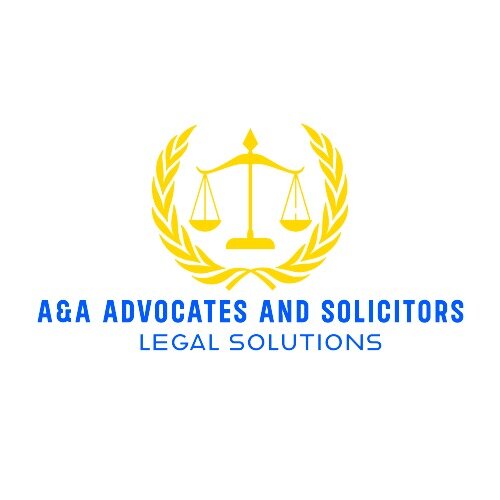Best Technology Transactions Lawyers in Ghana
Share your needs with us, get contacted by law firms.
Free. Takes 2 min.
Or refine your search by selecting a city:
List of the best lawyers in Ghana
About Technology Transactions Law in Ghana:
Technology Transactions Law in Ghana refers to the legal rules and regulations that govern the use of technology in various business transactions. This area of law covers a wide range of issues such as software licensing, data privacy, intellectual property rights, and e-commerce. It is crucial for businesses and individuals involved in technology transactions to understand these laws to ensure compliance and protect their interests.
Why You May Need a Lawyer:
You may need a lawyer for Technology Transactions in Ghana if you are entering into a complex technology agreement, facing disputes with technology vendors or clients, dealing with data breaches or cybersecurity issues, or seeking to protect your intellectual property rights. A lawyer with expertise in Technology Transactions can provide valuable advice and representation to help you navigate these legal issues effectively.
Local Laws Overview:
Some key aspects of local laws that are particularly relevant to Technology Transactions in Ghana include the Electronic Transactions Act, Data Protection Act, and Intellectual Property Laws. These laws govern various aspects of technology transactions such as electronic signatures, data protection, and protection of intellectual property rights. It is essential to comply with these laws to avoid legal consequences and protect your rights.
Frequently Asked Questions:
1. What is a technology transaction?
A technology transaction refers to any business agreement involving the use of technology, such as software licensing, cloud computing, e-commerce, and data sharing.
2. Do I need a lawyer for technology transactions in Ghana?
Hiring a lawyer with expertise in Technology Transactions can help you navigate complex legal issues, ensure compliance with local laws, and protect your interests in technology agreements.
3. What are the key laws governing technology transactions in Ghana?
Key laws governing technology transactions in Ghana include the Electronic Transactions Act, Data Protection Act, and Intellectual Property Laws.
4. How can a lawyer help me with technology transactions?
A lawyer can provide legal advice, draft and review technology agreements, negotiate with technology vendors, protect your intellectual property rights, and represent you in disputes related to technology transactions.
5. What are some common issues in technology transactions?
Common issues in technology transactions include data breaches, cybersecurity risks, software licensing disputes, intellectual property disputes, and compliance with data protection laws.
6. How can I protect my intellectual property in technology transactions?
You can protect your intellectual property in technology transactions by including clear IP clauses in your agreements, registering your IP rights, and enforcing your rights through legal action if necessary.
7. What should I consider when negotiating a technology agreement?
When negotiating a technology agreement, you should consider the scope of services, payment terms, warranties, liability provisions, data protection clauses, intellectual property rights, and dispute resolution mechanisms.
8. What are the consequences of non-compliance with data protection laws?
Non-compliance with data protection laws in Ghana can result in fines, penalties, legal action, reputational damage, and loss of customer trust. It is essential to comply with data protection laws to protect personal data and avoid legal consequences.
9. Can I transfer my technology agreements to third parties?
Transferring technology agreements to third parties may require the consent of all parties involved and careful consideration of the terms and conditions of the agreement. A lawyer can help you navigate the process of transferring technology agreements effectively.
10. How can I find a lawyer for technology transactions in Ghana?
You can find a lawyer for technology transactions in Ghana by searching online legal directories, asking for referrals from business associates, contacting legal professional bodies, or seeking recommendations from other businesses in your industry.
Additional Resources:
For additional resources related to Technology Transactions in Ghana, you can contact the Ghana Data Protection Commission, Ghana Intellectual Property Office, and Ghana Bar Association for guidance and information on legal matters related to technology transactions.
Next Steps:
If you need legal assistance in Technology Transactions in Ghana, you should contact a lawyer with expertise in this field to discuss your specific legal needs, receive professional advice, and receive assistance in drafting, reviewing, and negotiating technology agreements to protect your interests and ensure compliance with local laws.
Lawzana helps you find the best lawyers and law firms in Ghana through a curated and pre-screened list of qualified legal professionals. Our platform offers rankings and detailed profiles of attorneys and law firms, allowing you to compare based on practice areas, including Technology Transactions, experience, and client feedback.
Each profile includes a description of the firm's areas of practice, client reviews, team members and partners, year of establishment, spoken languages, office locations, contact information, social media presence, and any published articles or resources. Most firms on our platform speak English and are experienced in both local and international legal matters.
Get a quote from top-rated law firms in Ghana — quickly, securely, and without unnecessary hassle.
Disclaimer:
The information provided on this page is for general informational purposes only and does not constitute legal advice. While we strive to ensure the accuracy and relevance of the content, legal information may change over time, and interpretations of the law can vary. You should always consult with a qualified legal professional for advice specific to your situation.
We disclaim all liability for actions taken or not taken based on the content of this page. If you believe any information is incorrect or outdated, please contact us, and we will review and update it where appropriate.
Browse technology transactions law firms by city in Ghana
Refine your search by selecting a city.








